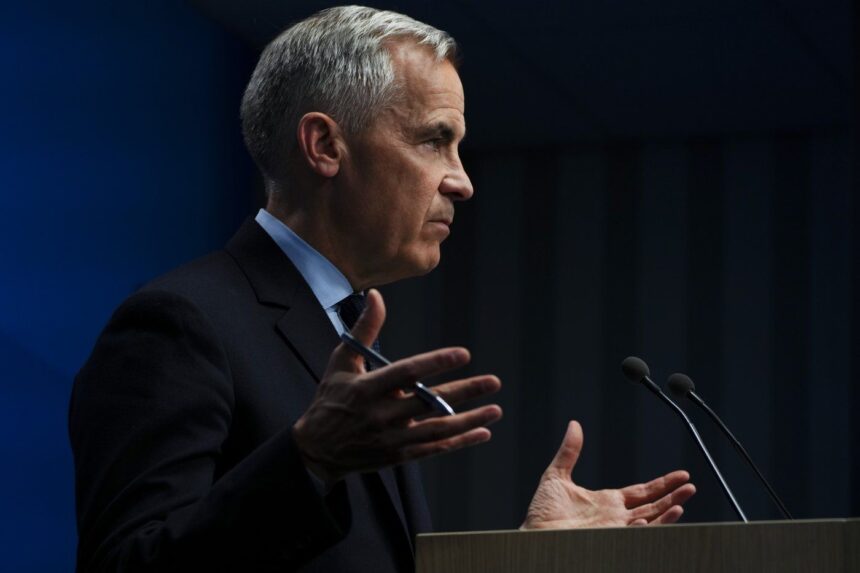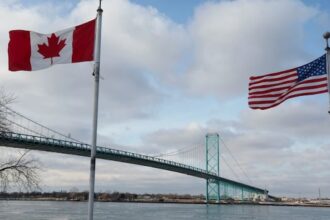The diplomatic dance between Canada and the United States has taken a concerning turn as Finance Minister Mark Carney delivered a sobering assessment of ongoing trade negotiations. During Tuesday’s parliamentary committee appearance, Carney acknowledged what many economic analysts have feared: any new trade agreement with the U.S. will likely include some form of tariffs, regardless of which administration takes power after November’s presidential election.
“We have to be realistic about the state of American politics,” Carney stated with characteristic frankness. “Protectionist sentiment has become deeply entrenched across party lines, and Canada needs to prepare for the economic implications of this new reality.”
The warning comes as Canadian officials scramble to navigate increasingly choppy waters in the bilateral relationship. According to CO24 Business analysis, exports to the U.S. represent approximately 75% of Canada’s total exports, making any disruption to this trading relationship potentially devastating for the Canadian economy.
Carney’s comments reflect growing concern within Ottawa that the era of relatively open borders for Canadian goods may be drawing to a close. Trade experts monitoring the situation note that both major U.S. political parties have embraced varying degrees of economic nationalism, leaving Canadian negotiators with diminishing leverage.
“The question isn’t whether tariffs will be imposed, but rather their scope and which sectors will bear the brunt,” explained Dr. Helena Winters, senior trade economist at the University of Toronto. “Canadian industries from lumber to automotive manufacturing are particularly vulnerable.”
Parliament’s Trade Committee has begun studying potential economic impacts of various tariff scenarios, with preliminary findings suggesting that strategic sectors like critical minerals and clean energy technology might receive preferential treatment while traditional manufacturing could face new barriers.
Sources within Global Affairs Canada confirmed to CO24 that contingency planning is already underway. “We’re looking at diversification strategies, support programs for affected industries, and potential retaliatory measures if necessary,” said one senior official speaking on condition of anonymity.
Business leaders across Canada have responded with mounting anxiety. The Canadian Chamber of Commerce released a statement calling for transparency in negotiations and emphasizing the integrated nature of North American supply chains. “Any significant tariffs will ultimately harm consumers and businesses on both sides of the border,” the statement read.
International trade watchers note that Canada’s predicament reflects broader global trends. “What we’re seeing is the continued fragmentation of the post-Cold War economic order,” noted Dr. James Morrison of the Canadian Institute for Global Affairs. “Countries everywhere are recalibrating their trade relationships in response to perceived national security concerns and domestic political pressures.”
The Finance Minister’s warning has particular significance given his previous role as Governor of the Bank of Canada and his extensive international experience. Carney emphasized that while Canada will advocate strongly for its interests, preparing for economic headwinds is simply prudent governance.
As these world events unfold, the question that looms largest for Canadians is not whether our economy will change in response to U.S. protectionism, but how quickly we can adapt to preserve prosperity in an increasingly fragmented global marketplace. Will Canada’s economic diversification efforts proceed quickly enough to offset potential losses in our traditional export markets?

























